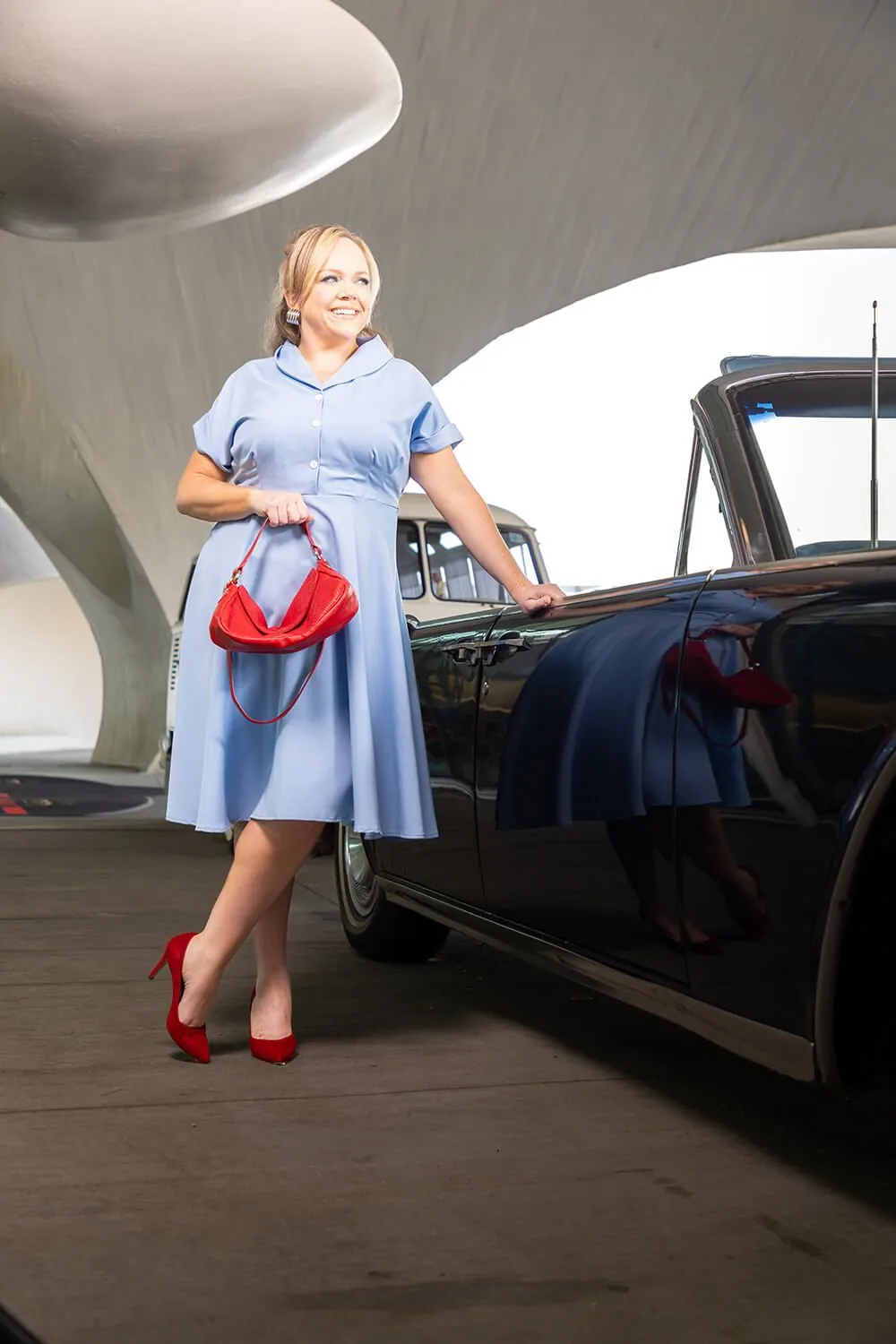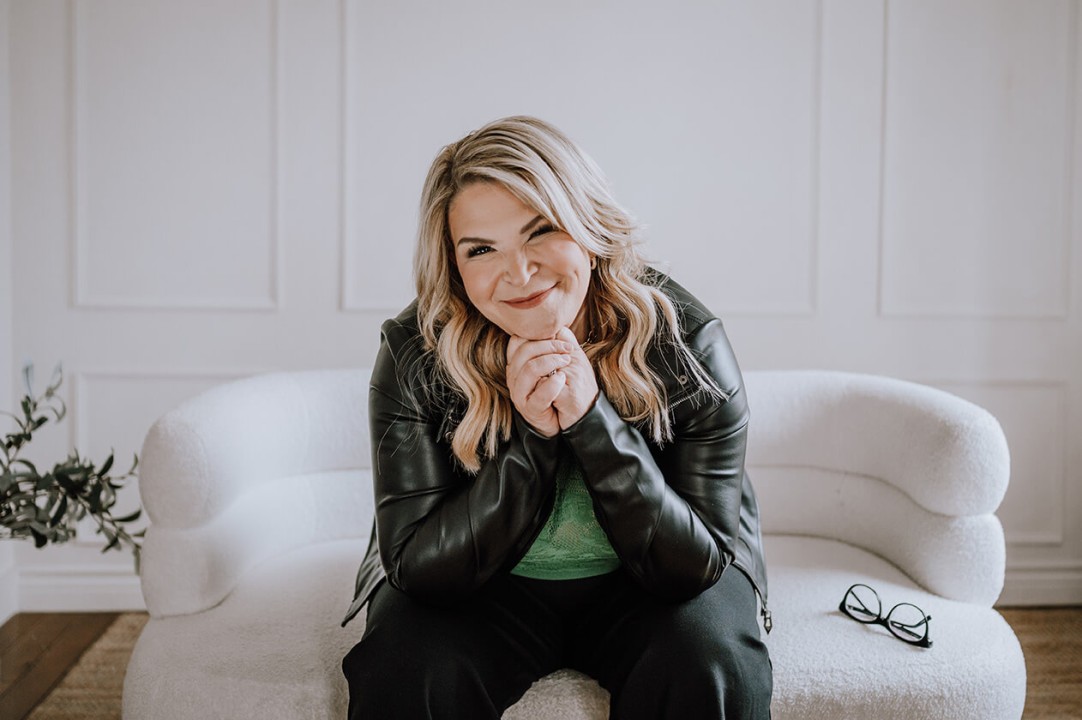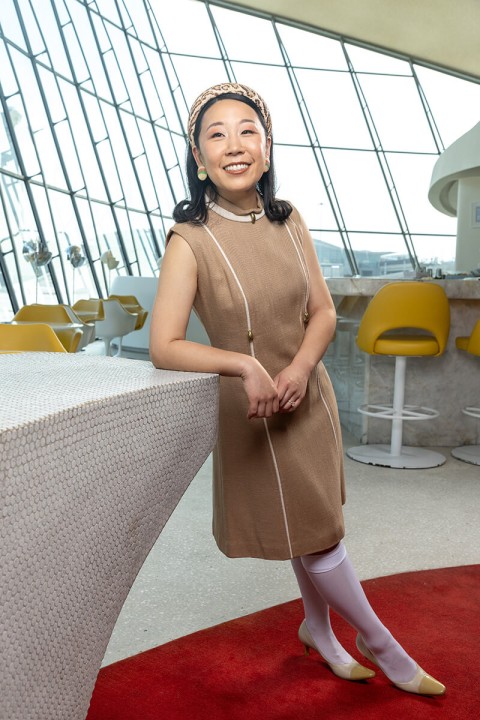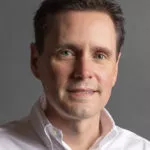And they’re doing something about it. Here’s how this year’s 40 Under 40 are winning at job satisfaction, personal wellness and professional longevity.
ONLY A FEW short decades ago, work-life balance just . . . happened. Email and cellphones were barely a thing. Aside from the occasional emergency, dentists followed the same predictable rhythm as, say, bankers or pharmacists. It’s tempting to romanticize the 1980s and ’90s, but for all their charms, technology, innovation and health care were almost primitive compared with today.
Progress, however, comes at a price. Work stress now regularly bleeds into personal time. Today’s balance isn’t just about hours. It’s about mindset, peace and mental boundaries. For Incisal Edge’s 40 Under 40 Class of 2025, that means building practices on their own terms, mastering time management and reframing work itself. Here’s what we learned from more than 80 interviews.
Less Connection, More Burnout
“The most helpful thing anyone ever told me was this: Burnout doesn’t happen all at once. It sneaks up,” says Dr. Jae Hong Park. Not only that, according to our 40 Under 40, it can start alarmingly early in a career, making it even more insidious. Add in the rise of hardcore hustle culture—glamorized on social media and valorized by the ambitious—and you’ve got a dangerous mix. Eighty-hour workweeks may be fine for bleary-eyed Silicon Valley coders whose worst screw-ups amount to a glitch on X, but not for doctors capable of life-altering medical mistakes.
Dr. Jody Carrington, a psychologist and the straight-talking, best-selling author of Feeling Seen: Reconnecting in a Disconnected World (2023), is characteristically blunt. “We need more brave conversations in this field. We need to normalize needing help. Needing a break. Needing a damn hug.” Burnout starts with “a missed meal here. A skipped workout there. A ‘just one more patient’ kind of day that turns into your new normal,” she says. “You stop noticing you’re not seeing your friends. Suddenly you’re more irritable, less connected and feel like you’re failing at everything—including being ‘enough.’ ”
Flirting with Disaster
“Early in my career, I was eager to grow and prove myself, so I poured everything into clinical dentistry. I saw it as a lifelong journey, but I was trying to sprint through it,” says Dr. Melissa Danielle Porter, who admits she sometimes worked three weeks straight without a break. Dr. Rachel Hargraves poignantly remembers, “I heard my daughter tell her grandmother that ‘Mommy is always working.’ ” Dr. Daniel McGovern recalls that early in his career, “I was all about the grind. I wanted to prove myself and take on every opportunity. After a few years, I started to notice signs of burnout: fatigue, irritability and losing the sense of joy in my work.”
All three pulled themselves out of the spiral. “It hit me: I wasn’t honoring who I was outside of dentistry,” Dr. Porter says. “I started building in recovery and social days, making space for the parts of life that recharged me. It made all the difference. I loved dentistry again.” Says Dr. Hargraves, “Patients won’t remember in ten years that you stayed late at the office for them, but your kids will. That really hit home.” For his part, Dr. McGovern “started carving out more personal time and embracing the idea that taking care of myself allows me to take better care of my patients.” So how exactly are doctors like these rescuing themselves?
Drawing Lines
“Structure isn’t rigid—it’s a form of freedom,” says Dr. Deren Flesher. For our 40 Under 40 honorees, boundaries and routines seem to go hand in hand: Boundaries offer protection and routines help maintain them. “My calendar is color-coded,” Dr. Yoon Kim says. “Nonnegotiable family time, workouts and even ‘me time’ get blocked in like work meetings.”

For me now, it’s not just about productivity—it’s about peace, connection and showing up for the people who matter most.” —Dr. Sarah E. Myers
For associates or those with less autonomy, communication is key. “Have a clear discussion with your employer about their expectations,” says Dr. Nicole Del Carpio. “Find out if there could be future changes in your schedule and communicate what flexibility you want.” No matter where your career stands, start early and be intentional. “The habits you start with often become your norm,” says Dr. Sarah E. Myers. Adds Dr. Heba Al Tamimi, “Early in your career, it’s tempting to say yes to everything. But burnout is real. The better you care for yourself, the better you’ll care for your patients.”
Finally, remember there’s a difference between enforcing boundaries and simply being inflexible. “Keep an open mind,” says Dr. Christopher Karapasha. “If a boundary [affects] your family, well-being or office success, stand by it. But consider the circumstances.”
(Not) Doing It All
“Saying yes to something means saying no to something else,” says Dr. Ashley Dawson. All the more reason to avoid one of the worst traps: thinking it’s easier if you do everything yourself. “There have been times when I’ve had to return to the office as late as 10 p.m.—after putting my son to bed—to finish lab work or catch up on notes,” Dr. Karapasha says. “It made me realize that I need to do a better job training my staff and delegating tasks that don’t require my direct involvement.”
Easier said than done? Yes and no. It takes work, but time and patience with your team pays off. “The former owners of my practice and two of my most influential mentors, Dr. Jim Nager and Dr. John Lapidus, taught me important lessons about the business side of dentistry,” says Dr. Sean M. Langton. “Running a successful practice isn’t about dramatic wins or overnight breakthroughs. Instead, they instilled in me the importance of consistency and discipline: the idea that true business success comes from stringing together the small, steady wins.”
Dr. Sabrina Dragan admits that “at first, delegating was a real challenge for me—cue the Type A personality joke.” But practice ownership taught her an important secret to happiness: “Surrounding myself with trustworthy staff and providing them with the right training and tools empowered them to excel. By clearly communicating our culture and goals, I help my team make the best decisions for our patients and their families.”
The line between work and life? It’s not just blurred. For many, it has completely disappeared.”
—Dr. Jody Carrington, psychologist

Cultures and Caring
If you’re a lucky associate, you may have an especially caring employer. Dr. Peter B. McClellan is CEO of Prairie Village, Kansas–based Dynamic Dental Services Group, which was founded as an alternative to what it calls the big-box DSO model. “We realize dentists are looking to have more flexibility, balance and coverage. In our group, we identify three weeks during the year when we encourage our doctors and teams to take a break,” explains the 40 Under 40 honoree from 2022. He notes that Silicon Valley–type hours will never be part of his company’s culture. “Dentistry in the U.S. has always been a little ahead of the curve in terms of a four-day workweek being the norm.”
If you’re your own boss, well, you need to be extra vigilant. And yes, that means keeping an eye on money as much as on mental health. Dr. Carrington, the psychologist, says “research shows burnout kills productivity. Let me translate that: If your staff is burned out, your patients feel it. If you are burned out, you make more mistakes, you show up distracted and the joy that once fed your passion is gone. And guess what? Patients can smell that a mile away.”
The good news, she says, is that your body always knows before your brain does—if you know what to look for and listen to people who may see the signs before you do. “You’re exhausted even after a full night’s sleep. You forget things—names, tasks, why you walked into a room. You find yourself resenting your staff or patients for asking for . . . well, anything. You stop caring about things you used to love. If you’re asking yourself, ‘Is this normal?’—it probably isn’t. That’s your cue. You’re not lazy. You’re not failing. You’re fried. And we can’t solve what we won’t name.” So what more can we do to claw back what we’re losing?
Movement as Medicine
One of the strongest themes to emerge from our interviews was the power of exercise—not strictly for building strength or endurance, but for enhancing mood, boosting energy and cultivating a sense of control during demanding and unpredictable days. “Waking up to exercise before work helps energize me and puts me in the right frame of mind to navigate the day,” says Dr. Robert Dennis. Dr. Christopher Naglieri agrees, calling it “a huge anchor for maintaining balance.” Dr. Heba Al Tamimi says there’s restorative power in even short bursts of exercise—which is sometimes all that’s attainable. “A quick walk, gym time or stretching helps me clear my mind and boost my energy.”
The results can be dramatic—and lasting. Dr. Lex Pierre IV remembers his transformation following the pandemic. “At the time, I was 30 pounds overweight, prediabetic and on the verge of becoming obese by sitting at home doing nothing.” The former college athlete made changes he has stuck with to this day. “I lost the 30 pounds within a month by mostly eating clean and doing two-a-day workouts. I’ve incorporated the diet into my daily routine now. To maintain a healthy lifestyle, I play tennis at least twice weekly and go to the gym three days a week. I wholeheartedly believe that to be your best, it’s important to feel your best.”
Making Time for Being Present
 It takes considerable focus to make the most of our relatively few hours of free time. For many, that means structuring their lives around what matters most. “Being an owner gives me the flexibility to prioritize family when I need to,” Dr. Dragan says. “If I have to close the office early to make it to a dance recital or a tee-ball game, I can.” Dr. Casey Rhoads’s recipe involves “starting our days a bit earlier and finishing by 4 p.m.” so she can be home with her kids. “We built our practice around those priorities from the beginning.”
It takes considerable focus to make the most of our relatively few hours of free time. For many, that means structuring their lives around what matters most. “Being an owner gives me the flexibility to prioritize family when I need to,” Dr. Dragan says. “If I have to close the office early to make it to a dance recital or a tee-ball game, I can.” Dr. Casey Rhoads’s recipe involves “starting our days a bit earlier and finishing by 4 p.m.” so she can be home with her kids. “We built our practice around those priorities from the beginning.”
 For couples, sharing routines is an important part of making relationships work. “My wife and I made it a priority to carve out consistent time for ourselves,” Dr. Naglieri says. “We start every morning with a 5 a.m. workout, always sit down for dinner together and end the day by reading.” Dr. Michelle Somma Williamson owns a growing practice with her husband. “Together,” she says, “we’ve created a work-life balance that allows us to have a successful business, give back to our community and be present with our three young children.” For Dr. Alice M. Arroyo-Juliá, balance means making time for both connection and restoration. “I always do my best to dedicate quality time to my family, work and friends—while also making sure to prioritize ‘me time.’ ”
For couples, sharing routines is an important part of making relationships work. “My wife and I made it a priority to carve out consistent time for ourselves,” Dr. Naglieri says. “We start every morning with a 5 a.m. workout, always sit down for dinner together and end the day by reading.” Dr. Michelle Somma Williamson owns a growing practice with her husband. “Together,” she says, “we’ve created a work-life balance that allows us to have a successful business, give back to our community and be present with our three young children.” For Dr. Alice M. Arroyo-Juliá, balance means making time for both connection and restoration. “I always do my best to dedicate quality time to my family, work and friends—while also making sure to prioritize ‘me time.’ ”
Mentors and Mantras
Some of the most insightful thoughts come from those who embraced early advice given by teachers and role models. For Dr. Mohammed A. Akl, a residency mentor’s reminder that “you can’t pour from an empty cup” reinforced the restorative power of balance. Dr. Milca Mendez-Ceballos was guided by a mentor’s advice to “eat the elephant one bite at a time,” which helps her avoid the trap of tackling too much at once.
Not all mentorship came from formal training. Dr. Lauren Belous credits peers and colleagues with encouraging her to explore therapy, yoga and learning to say no. And for Dr. Kalynn F. Naglieri, the most enduring advice came from her mother. “Have a few passions: one that makes you money, one that keeps you active and one that keeps your soul happy. That balance is where the magic happens.”
Connection as the Cure
Exhausting hours and punishing schedules aren’t conducive to high-quality dentistry or long-lasting careers. “Dentists carry an incredible emotional load—perfectionism, financial pressure, patient fear—and very few spaces to talk about any of it,” Dr. Carrington says. “That’s why work-life balance isn’t just about self-care—it’s life-saving. We rise when we feel like we matter. And that starts with staying connected.”
While balancing work and life may feel like a lonely pursuit, our discussions prove the foundational wisdom and motivation behind successful strategies come from a strong network of peers, mentors, friends and family. “Having the right support around you, both personally and professionally, is key to maintaining balance and avoiding burnout,” says Dr. Laura Shim (above right). Adds Dr. Belous: “Find friends and colleagues who are supportive, open to sharing and willing to lift you up during the hard times.” The blueprint is constantly being updated, but one truth is clear: High-achieving dentists don’t thrive by toughing it out alone in today’s pressure-packed world.



